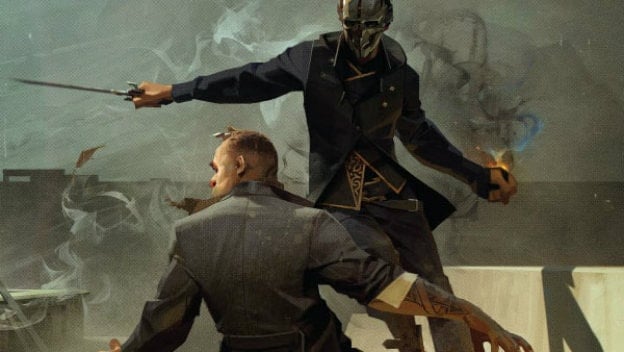Yesterday, Bethesda made an announcement that’s been making headlines and causing discussions among all different groups of people who enjoy games. It’s stated that it will no longer provide early review copies to outlets, only sending them out one day before the game is officially released, under the guise of wanting everyone “to experience our games at the same time.” It said this will be the norm going forward, starting with Dishonored 2 and The Elder Scrolls V: Skyrim Special Edition , then immediately showed it had contradicted that hypocritical statement by having given an enthusiastic YouTuber and Bethesda fan named Grohlvana a copy of Skyrim Special Edition a month ago.
Moving away from early review copies, which in turn means no advance coverage of games, is a drastic move. It’s one 2K Games has also pulled with Mafia III and Civilization VI two games that, while good, have been shown to have some pretty substantial launch issues. But, does this really benefit anyone besides the people trying to sell the games? Yes, I’m coming at this in the position of someone who has regularly had early access to games, but I think it’s clear that only the publishers of AAA games win with this move.
For the people who write about games, such a move makes our jobs harder. There may be some people who think no advance review copies is no big deal. It just means fewer “freebies” for people like me. But, those of us who write about games don’t see them in the same way as you do. We don’t see early access to a game as an opportunity to have fun. It’s a job.
When we get a 30-50 hour game like Dishonored 2 or Mafia III , we’re calculating how much time we can sacrifice to beat or, in an open-world game’s case, see enough of the game so we can write accurate and properly informed reviews before our deadlines are up. Time can’t be cut out of our day jobs, which means we spend less time eating, sleeping, and engaging in normal activities to get these things done. Release day review copies make our lives harder.
I know, you’re probably thinking, “Boo hoo.” But really, this affects you too. When we get more time to play a review copy, we get to really put a game through its paces. We can warn you when something is bad and should be avoided either temporarily or permanently. By cutting this down, information is being stifled. You aren’t getting news on how good or bad something is until it’s too late. You may have pre-orders you can’t cancel. You may have wasted money on something you shouldn’t have bought.

Worse, Bethesda has shown it’s willing to encourage a practice that will taint advance information. It gave Grohlvana an advance copy of Skyrim Special Edition knowing that this was an enthusiastic YouTuber that is a fan of them and the series. Such people might be so happy about playing a game from a series and publisher they love that they won’t be objective about it. They may edit their videos to only show the good stuff, not crashes, errors, and glitches. Biases can exist everywhere, but already we have one example of a company pandering to someone they know will give them the sort of coverage they approve of, the kind that will sell more of their games.
All of this reinforces that only AAA publishers win when early review copies aren’t sent out. If a game isn’t perfect or, worse, is a steaming pile, that’s okay! The review didn’t run until after launch, so the pre-order and day-one purchase money is rolling in. Bethesda may seem like a company that makes solid games, but think about how different Fallout 4 feels compared to Fallout 3 and Fallout: New Vegas . Also, take into account the problems certain versions, like the PS4 one, had at launch. Didn’t you appreciate knowing that ahead of time, when the November 9 review embargo was up? Didn’t it help you make your decision the next day when buying the game? With this movement, those days are gone.
